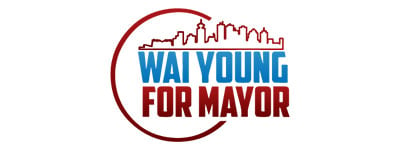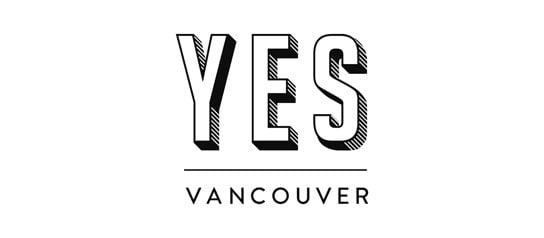Vancouver voters will be familiar with civic political parties Vision Vancouver, the Non-Partisan Association (NPA), the Coalition of Progressive Electors (COPE), the local Greens and the young OneCity.
But what about Coalition Vancouver, ProVancouver and Yes Vancouver? These three are new parties taking on the establishment in their first civic election. All three parties are running candidates for city council, school board and park board.
Despite being political parties, all three of these new Vancouver parties claim they are not partisan and welcome people and ideas from across the political spectrum, a contrast to the mainline parties that have clearer political leanings. Two were formed out of tussles with the right-leaning NPA.
Historically, voters have almost exclusively elected candidates from established parties into office. A few new parties that ran in the 2014 election — the Cedar Party, OneCity, Vancouver 1st, among others — did not win any seats. OneCity, however, won a school board seat in last year’s byelection, and its candidates are expected to do well this election. (Though the successful Vision Vancouver is a relatively young party, founded in 2005, it was formed as the result of a split from lefter party COPE.)
Coalition Vancouver, ProVancouver and Yes Vancouver are positioning themselves to voters as fresh alternatives after three terms of Vision Vancouver’s Mayor Gregor Robertson and councils dominated by his party. A number of well-known candidates are also running for office as independents in the crowded race.
Vision’s political rivals have targeted the long-ruling party for worsening housing affordability under its watch. New parties are using rhetoric framed around uniting Vancouver to be more affordable and inclusive; one candidate with ProVancouver, Rohana Rezel, says he wants to help “rebuild Vancouver as a city for all.”
What do the new parties have to offer that’s different from existing parties? Are they daunted by the challenge of championing a young brand? Here’s what a party president and two mayoral candidates had to say.
Coalition Vancouver

Coalition Vancouver is running former Conservative MP Wai Young as its mayoral candidate.
Young originally planned to run with the NPA. Peter Labrie, a former NPA director, considered her to be the “frontrunner” candidate and backed her bid.
“[But] there were some administrative issues with getting some of our members recorded that she had collected,” he said.
Young told the Vancouver Sun that the NPA said there were problems with the sign-up forms from some of her supporters. Young said they fixed the problem, but when her supporters showed up to vote for her at the AGM, they were told their memberships were never approved. (Read more here.)
“To make a long story short, we just decided to do our own party,” Labrie said. “We just figured that it was easier to get our message out there if we did it ourselves … We’re not going to have that baggage.”
Young later called the party “the dusty old NPA with their backroom boys.”
“We believe in collaboration, accountability and transparency,” said Labrie, who noted it’s the acronym CAT. “I don’t see that type of value-based leadership in the NPA. You can see all these people that are leaving now. That’s because there’s a lack of those type of fundamental values.”
The duo founded Coalition Vancouver, and Labrie became its president. The party has over 2,000 members signed up. It is mostly supported by volunteers, with one part-time staffer.
Coalition Vancouver’s full policy platform has yet to be released, but Young has spoken out strongly for the removal of a few of Vancouver’s “divisive and discriminatory” bike lanes, one of them being the bike lane on West 10th outside of the Vancouver General Hospital.
“They discriminate against seniors, they discriminate against single moms and many other groups,” she said at her campaign launch. “They are a private roadway system which only benefits a very few specific [people] in our society. There are many places where this private road system is dangerous — I’ve heard that from people all over Vancouver — or where it simply makes no sense.”
Vision has significantly increased bike lanes since taking office in 2008; Young calls it a “city hall-sponsored artificial constriction of vehicle traffic based upon an ideological war on transportation.”
To “free the roads” and give more priority to cars, Young pledges to make parking free on Sundays and after 8 p.m., not build any new bike lanes unless one is removed elsewhere and revamp traffic laws. Though critics say the traffic data disprove that more bike lanes mean more congestion.
Some might think of Coalition Vancouver as a right-leaning party because of Young’s Conservative and NPA ties and her calls for lower taxes (she criticized the “socialist capital appropriation” of the NDP’s increased school tax on homes worth over $3 million), but Labrie says the party is centrist.
“It’s a hot rod party,” Labrie said. “The idea of a coalition is that we steal ideas from everywhere. We’re going to be pulling lots of interesting progressive ideas.”
While Labrie said he couldn’t share specific party policies on housing before an official announcement, he said they’re “looking at things like the Vienna model,” which he acknowledges was also a source of inspiration for Patrick Condon, who was vying to be left-wing party COPE’s mayoral candidate until he pulled out of the race for health reasons.
Labrie said the party wants to champion a Vancouver of sustainable opportunities: “You got to be able to provide an environment where young people coming out of university and college can see a path to ownership, a path to starting their own companies, their own careers and to thrive and start their own families.”
What isn’t healthy, he said, is Vancouver becoming a “hedge city” for the wealthy with a brain drain of local talent.
In addition to helping young workers get a “toehold in the market,” Vancouver needs to foster a robust rental market and not sell public land, Labrie said, suggesting it could be leased to developers of affordable housing. He said the city should reduce fees and speed up processes at city hall so that developers can build more homes.
Aside from Young for mayor, the party plans to run a majority slate on city council, school board and park board, Labrie said.

Financial planner David Chen is ProVancouver’s mayoral candidate.
Chen has a range of community experience, from chairing his children’s school’s parent advisory committee to being the president of a 500-unit strata, and was encouraged by people he came across to run for office. Chen’s also worked a number of jobs, from short-order cooking to training people how to scuba dive.
He considered a run with the Greens, but decided to build his own party: ProVancouver.
“Then you’re not beholden to party lines and the party politics or histories that come with those parties,” he said. “You can design a party from the ground up.”
Though ProVancouver is a party itself, Chen says candidates will not be required to toe the party line.
He describes ProVancouver as centrist.
Chen says it’s the “last stand” in the battle for Vancouver’s soul. Reports of people leaving Vancouver due to unaffordability and homes treated as investments led him to decide to run for mayor.
The party’s housing platform aims to connect local incomes to housing costs by: implementing a one-to-one ratio of market to non-market housing, requiring new developments to set aside at least half of the units for rental, prevent evictions in the wake of demolitions and renovations and protect rental stock from shrinking as a result of short-term rentals like Airbnb. The party also pledges to advocate higher levels of government for cities to be able to use rent control and to prevent speculation around transit-corridors and speculation by global investors.
These policies don’t mean they’re an anti-developer party, Chen said.
“We’re not builders. Everything’s going to be a joint exercise,” he said. “We do need builders [but] big developers have a monopoly due to their size and what they can accomplish … There is a track record that certain builders get undue influence from the deals they get. You see it pop up in the news.
“We want to reward good behaviour. Look at the Nexus model of streamlined entry. Time is money. We’re interested in fast-tracking for good architects.”
Aside from housing, the party wants to help create more childcare spaces and encourage small business growth and entrepreneurship.
ProVancouver currently has three council candidates, all of whom have been vocal about real estate speculation, and one school board candidate. The party plans to have two more candidates for council, one more for school board and one for park board.

Hector Bremner is another mayoral candidate who parted with the NPA.
Bremner was elected to city council with the NPA during last year’s byelection and intended to run for mayor with the party this election. However, he was blocked by the NPA board from putting his name forward as a candidate for its mayoral nomination. NPA president Greg Baker would only say that the party’s green light committee had “serious” and “major” concerns with Bremner.
The Globe and Mail reported that the controversy “appears” to be centred around Bremner’s ties to developers. Bremner is a vice president of public affairs with the Pace Group, which does public relations, communications and lobbying for a wide variety of clients, including the Aquilini family, who are major Vancouver developers. Bremner has said he’s only worked directly on one development file and that was in White Rock. Bremner also worked as executive assistant to B.C.’s then minister responsible for housing and the deputy premier, Rich Coleman, from October 2014 to December 2015.
The cornerstone of Bremner’s platform is the slogan “Let’s Fix Housing,” and Bremner intends to do so by encouraging the construction of more supply fast, something developers and “Yes in My Backyard” advocates have been lobbying for too. Bremner’s stance on citywide densification is not one that Vancouver politicians have taken in the past.
Bremner says the “movement” to build more housing was started “organically” by locals due to Vancouver’s need, and that he had to act because they were left “scratching their heads” after his row with the NPA.
“The city manages its processes and its land base very badly. We’ve been tearing down single-family homes to build more single-family homes,” said Bremner. “We need to say yes to better ways. More rentals. More co-ops. More missing middle. We need to say yes to it in all of our neighbourhoods.”
Bremner praised the city’s Making Room strategy — which will gently densify areas of detached houses — but he says it’s too “incremental.”
“They’re dipping their toe in the water of going the right way,” he said. “We need to go further.”
So Bremner started his own party: Yes Vancouver.
Yes Vancouver has no staff and is volunteer run. The party is running eight candidates total, Bremner included, a number of which are small business owners. Its seven-member board includes Kerry Gibson (the party’s president), the president of clean tech company EcoCentury technologies, and Howard Grant, a Musqueam Indian Band councillor. Almost half of its candidates and board members are women.
To turn to the tap for more supply and ease what it calls “speculation caused by scarcity,” Yes Vancouver proposes streamlining approval processes, “pre-zoning” the entire city for higher density and using incentives and city-owned land to create affordable housing that the market isn’t providing. ![]()
Read more: Politics, BC Politics, Municipal Politics
















Tyee Commenting Guidelines
Comments that violate guidelines risk being deleted, and violations may result in a temporary or permanent user ban. Maintain the spirit of good conversation to stay in the discussion.
*Please note The Tyee is not a forum for spreading misinformation about COVID-19, denying its existence or minimizing its risk to public health.
Do:
Do not: